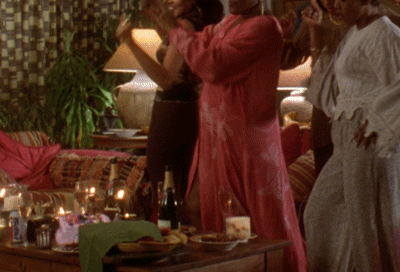I read a whole lot of smutty self-published online fiction. Usually, I am swiping furiously on the Kindle app, skimming a formulaic, cliche, and incredibly juicy ebook. They are a guilty pleasure. Like a double fudge brownie sundae, reading these books provides no emotional, spiritual, or personal nourishment. It’s all about fun and indulgence.
I binge and binge these predictable works until I feel sick. Then, I’ll recommit myself to a wholly literary diet until my brain is overwhelmed with thoughts, so I turn back to these books, ready for another binge session. These books have taught me almost nothing as a writer.
However, they sometimes feel like a barometer for female desire. What does it say that from March through April, interspecies romances with male protagonists who sprouted multiple tentacles popped up on my timeline and Booktok algorithms? Or, why do mafia romances continue to slide past my notice when I am never interested in those tropes? I’ll be 45% through a “dark romance” that never listed organized crime as a trope, and suddenly, folks are secretly a part of crime syndicates.
In a writing class in undergrad, a lecturer told my class with mostly with mostly Black and brown women that when we suspect work was written with bias to not stop there. We should probe deeper and notice how bias can cloud other judgements and create other craft issues within a work—address the symptoms as well as the root cause.
While the exercise seems altruistic, helping the writer address unintentional biases, more importantly, the reader becomes more discerning and better attuned to the rhetoric or cliches we take for granted. Repeated over and over words have the power to manifest and run rampant. So, understanding how words work in a particular moment can break the spell they could have over us.
It is what it is
I talked a few months ago about female friendships after finishing Sula. See those thoughts here.
Recently, I have grown annoyed with a trope closely linked with why choose (polyamorous) or chosen-one stories. In these tropes, the authors portray these female main characters as outsiders. For this reason, these characters don’t have many or any friends, especially female friends. The FMC’s self-esteem issues often stem from tragic backstories that will later provide her the strength or perspective needed to either stand out or be the savior a society needs.
Because of her low self-esteem, often from parental abuse or neglect, the FMC doesn’t know or understand how beautiful she is to the male gaze. And so, women dislike her because they’re jealous. Any friendship the FMC does make throughout the story is with someone who has a greater degree of separation from this idealized beauty standard—they’re not interested in a homosexual relationship, their social or economic identity clashes with the school, or they just are not invested in high school hierarchies.
There’ll be incidents between mean girls and our FMC where her suitors come to her rescue or her literal or metaphorical superpowers emerge. Sometimes, I wonder when these incidents occur if there’s a universe where our FMC, often the narrator, isn’t reliable. At times, I wonder if she’s misinterpreted events. Or, perhaps our FMC or omniscient narrator is a narcissist.
In one memorable altercation in a why choose book involving magic about a chosen one meant to reunite a stratified magical society, the FMC starts her semester intentionally acting bitchy to everyone and searches for the most popular girl to harass. She knowingly instigates a fight with the popular girl by dressing in a bikini to a dance and, as a result, gets pushed into a pool. The understandably frustrated popular girl screeches that this newcomer intentionally shifted attention to her outfit from the party's purpose. Our narrator frames the fight as self-involved. The popular girl wanted all eyes on her alone. But imagine someone intentionally showing up to your event dressed inappropriately, hoping to start a fight. And then the FMC wonders why she has no friends.
Across these tropes, the underlying narrative about women is that they cannot be trusted. The logic continues that female friendships do not contribute to a healthy and fulfilled life and are unnecessary since they do not play a role in heterosexual desire. So, any surrounding women must be competition. Competition should be treated with contempt at best.
Instead, the only friend our FMC needs is her love interest and maybe his friends. I don’t like this message at all. No one person, especially a romantic partner, should be your sole source of emotional support. This kind of thinking can be a slippery slope and can be used to justify abusive practices: distancing a partner from their community or sowing distrust in a partner’s outside relationships.
However, on a craft level, these dynamics also make me distrust the narrator and FMC. I cannot cheer on a bully. Having contempt for other women doesn’t make you cool; it just makes you a misogynist. I don’t want to feel more mature and level-headed than our author while trying to suspend my disbelief. I don’t want to know the author’s story more than they do; I want to be entertained.
All this doesn’t mean I stop reading. I also enjoy hate reading, another guilty and potentially unhealthy pastime.
Random Guilty-Pleasure Thoughts
Sometimes, I don’t want good pizza, so I eat Domino’s or Pizza Hut pizza.
I love finding out that original fiction is fan fiction in disguise.
Ashley Tisdale’s music was underappreciated. “He said; She said” is a Radio Disney bop.
He’s Just Not That Into You was my favorite rom-com for too long.





